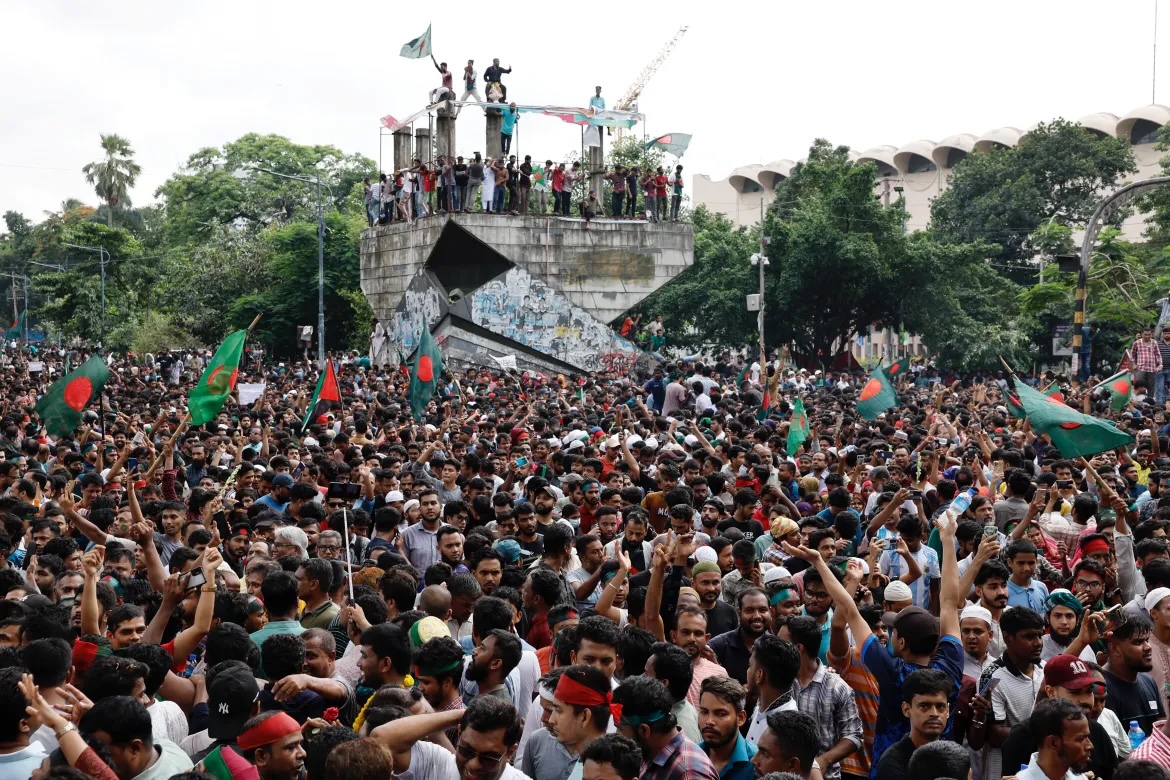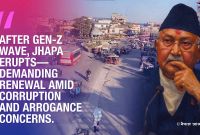China's $5 Billion Bet: The Real Story Behind Bangladesh's Political Upheaval

In a dramatic turn of events, Prime Minister Sheikh Hasina of Bangladesh has fled the country amidst escalating violence and unrest. Following a revolution that saw her ousted from power, Hasina was forced to leave her residence as protesters stormed her house, looting furniture and other possessions. This incident mirrors a similar uprising in Pakistan earlier this year when demonstrators raided the house of the core commander in Lahore, stealing food and other items.
As chaos unfolded in Dhaka, the statue of Bangabandhu Sheikh Mujibur Rahman, the founder of Bangladesh who led the country to independence from Pakistan, was vandalized by protesters. The unrest is a stark reminder of the violent history between Bangladesh and Pakistan. Sheikh Mujibur Rahman's family was targeted by the Pakistani army during the liberation war, but the Indian army intervened to protect them and took them to India.
Prime Minister Hasina, realizing the gravity of the situation, fled to a military airport and took a flight to India. Meanwhile, General Waker-Uz-Zaman addressed the nation, announcing the formation of a new government. This move by the military is not unprecedented in Bangladesh’s history. The country has witnessed several military coups and political upheavals since its independence in 1971.
The assassination of Sheikh Mujibur Rahman by Bangladeshi army officers on August 15, 1975, was a significant event in the country's history. This tragedy left Sheikh Hasina and her sister Sheikh Rehana as the only surviving members of their family. Subsequent years saw more political instability, including the rise of General Ziaur Rahman, who became the chief of army staff in August 1975 and later the president after a series of coups and counter-coups.
In 1982, General Hussain Muhammad Ershad seized power, further embedding military influence in Bangladeshi politics. More recently, from January 2007 to December 2008, a caretaker government led by Fakhruddin Ahmed was installed under military pressure to implement reforms in the electoral system, judiciary, and bureaucracy.
Amidst the political turmoil, Bangladesh has been facing an economic crisis. In early 2024, the country sought a $5 billion soft loan from China, marking a significant shift in its borrowing strategy. Previously, Bangladesh had relied on multilateral lenders and Chinese supplier credits for specific projects. This loan request comes as Bangladesh engages with the International Monetary Fund (IMF) for a $4.7 billion loan, imposing austerity measures on its population.
China has been actively involved in various development projects in Bangladesh, particularly under the Belt and Road Initiative (BRI). Notable projects include the Padma Bridge, Karnaphuli Tunnel, development of seaports, railway lines, power plants, and data centers. While these projects promise economic benefits, there are concerns about debt sustainability, environmental impacts, and growing Chinese influence.
The recent revolution, sparked by demands for reservation for freedom fighters' descendants, has raised questions about the authenticity of the movement. Some observers believe that external forces, particularly the United States and India, are unhappy with China's growing presence in Bangladesh and may have played a role in the unrest. The violence witnessed during this revolution is reminiscent of the turmoil during Bangladesh's fight for independence from Pakistan.
Lessons for Nepal
Nepal can learn several lessons from the recent events in Bangladesh:
-
Political Stability: Ensuring political stability is crucial for national security and economic development. Political leaders must address grievances before they escalate into full-blown revolutions.
-
Military Influence: Limiting military involvement in politics can help maintain democratic processes and prevent coups.
-
Economic Diversification: Relying too heavily on a single foreign power for economic assistance can lead to undue influence and potential economic risks.
-
Historical Awareness: Understanding historical context is vital. The parallels between past and present events can provide valuable insights for preventing future conflicts.
As Bangladesh navigates this turbulent period, the international community will be closely watching the developments and their implications for regional stability.




![From Kathmandu to the World: How Excel Students Are Winning Big [Admission Open]](https://nepalaaja.com/img/70194/medium/excel-college-info-eng-nep-2342.jpg)
